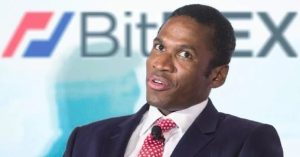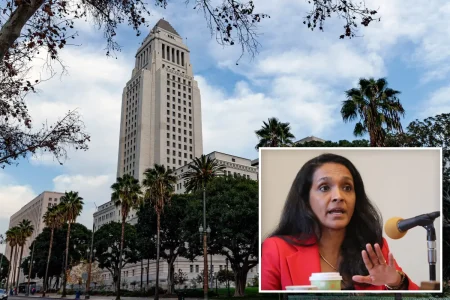Climate Crisis at the Crossroads: Inside COP30’s Crucial Negotiations
Global Climate Summit in Brazil Faces Mounting Pressure as Nations Confront Scientific Reality and Political Challenges
In the humid heat of Belém, a city nestled at the mouth of the Amazon River, world leaders and climate negotiators have gathered for what many experts describe as the most consequential climate summit in years. COP30, the 30th Conference of the Parties to the United Nations Framework Convention on Climate Change, arrives at a pivotal moment—when scientific warnings have never been clearer, yet political will remains frustratingly elusive. As temperatures continue to break records globally and climate-fueled disasters intensify, the stakes at this Brazilian summit couldn’t be higher.
The timing of this year’s conference carries particular significance, occurring amid mounting evidence that the planet is warming faster than previously projected. Recent data from the World Meteorological Organization confirms that 2023 marked the hottest year on record, with 2024 on track to exceed even those alarming benchmarks. “We’re witnessing climate change unfold in real-time,” explains Dr. Maria Gonzalez, lead climate scientist at the Earth Systems Research Institute. “The data isn’t just troubling—it’s screaming for immediate action.” This scientific urgency permeates the conference halls, where delegates from nearly 200 countries are negotiating what many hope will be transformative commitments to reduce greenhouse gas emissions and accelerate the transition to renewable energy.
The Science-Policy Disconnect: Bridging the Gap Between Knowledge and Action
The fundamental challenge at COP30 mirrors previous climate summits: translating scientific consensus into meaningful political agreements. While climate scientists have achieved remarkable precision in documenting the causes and consequences of global warming, the international political response has moved at a glacial pace. This disconnect was painfully evident during opening speeches, where scientific presentations detailing accelerating ice melt, ocean acidification, and extreme weather events stood in stark contrast to the cautious, often watered-down language of political commitments.
“There’s no scientific debate about the severity of the climate crisis,” notes Dr. James Hansen, veteran climate scientist who first testified about global warming to the U.S. Congress in 1988. “What we’re witnessing in Belém is essentially a political negotiation about how quickly nations are willing to transform their economies.” This transformation carries profound implications for energy systems, transportation networks, industrial processes, and agricultural practices—all sectors that must decarbonize rapidly to prevent catastrophic warming. The latest IPCC report, prominently cited throughout the conference, indicates that global emissions must peak by 2025 and decline 43% by 2030 to maintain any reasonable chance of limiting warming to 1.5°C above pre-industrial levels. Yet current national commitments would achieve only a fraction of these reductions, putting the world on track for approximately 2.8°C of warming by century’s end—a level scientists warn would be catastrophic for human societies and natural ecosystems alike.
The Equity Challenge: Balancing Responsibilities Between Developed and Developing Nations
Perhaps no issue generates more tension at COP30 than the question of climate equity—specifically, how to distribute the responsibilities and costs of climate action among countries with vastly different historical contributions to the problem and capabilities to address it. Developing nations, many already experiencing severe climate impacts despite minimal historical emissions, continue to press wealthy countries to fulfill long-standing financial commitments and increase their ambition.
“This isn’t just about environmental protection; it’s fundamentally about justice,” argues Aminata Touré, lead negotiator for the African Group of Nations. “Countries that industrialized early benefited from unrestricted carbon emissions for centuries. Now those same nations are asking countries still struggling with energy poverty to forgo fossil fuel development without adequate financial support.” The finance question looms particularly large, with developing countries pointing to the unfulfilled promise made in 2009 for wealthy nations to mobilize $100 billion annually for climate adaptation and mitigation. While wealthy nations finally reached this target in 2023—three years behind schedule—the need has grown exponentially. Current estimates from the United Nations suggest developing countries require between $340-450 billion annually by 2030 just for adaptation measures, with additional trillions needed for green energy transition. Brazil’s leadership of COP30 has deliberately centered these equity concerns, with President Lula da Silva opening the conference with a powerful call for climate justice: “Those who prospered through unchecked carbon emissions have a moral obligation to lead on solutions and support those now facing the consequences of their actions.”
The Amazon Factor: How Brazil’s Climate Leadership Shapes COP30’s Ambitions
Brazil’s role as host country adds particular significance to COP30, especially given the Amazon rainforest’s crucial role in regulating global climate. Often described as “the lungs of the Earth,” this vast forest system absorbs approximately 2 billion tons of carbon dioxide annually—roughly 5% of global emissions. Yet deforestation and degradation threaten this vital carbon sink, with some scientists warning that parts of the Amazon are approaching a tipping point where forest could convert to savanna.
President Lula da Silva has positioned Brazil’s renewed commitment to Amazon protection as central to its climate leadership, marking a dramatic shift from his predecessor’s policies that saw deforestation rates soar. “Brazil returns to the global climate stage not just as a participant, but as a leader,” Lula declared in his opening address. “We have reduced Amazon deforestation by 48% in our first year in office, and we’re implementing an ambitious plan to reach zero deforestation by 2030.” This environmental commitment carries significant weight in negotiations, as Brazil uses its moral authority as guardian of the world’s largest rainforest to press for greater ambition from industrial powers. The Brazilian delegation has introduced innovative proposals for valuing “ecosystem services” provided by intact forests, potentially creating new financial mechanisms to reward conservation. “The oxygen we produce and the carbon we sequester benefit the entire planet,” explains Brazil’s Environment Minister Marina Silva. “It’s time for this ecological contribution to be properly valued in the global economic system.”
Technology and Innovation: The Race for Climate Solutions Accelerates
Amid the sometimes contentious political negotiations, COP30 has showcased remarkable technological innovations that offer pathways to decarbonization across sectors. The Innovation Zone, a dedicated space within the conference complex, features cutting-edge developments in renewable energy, sustainable agriculture, carbon capture, and climate-resilient infrastructure—many developed through unprecedented collaboration between scientists, engineers, and entrepreneurs from around the world.
“The technology to address climate change largely exists today,” explains Dr. Arun Majumdar, energy systems expert and advisor to several delegations at COP30. “What we need is rapid deployment at massive scale, which requires policy certainty, financial incentives, and international cooperation.” Solar and wind power technologies, which have seen costs plummet over the past decade, feature prominently in national transition strategies, with new advances in energy storage addressing intermittency concerns. Green hydrogen, produced using renewable electricity, has emerged as a potential solution for hard-to-decarbonize sectors like steel production, shipping, and aviation. Meanwhile, nature-based solutions—from reforestation to regenerative agriculture—gain traction for their ability to sequester carbon while delivering co-benefits for biodiversity and local communities. The private sector’s growing presence at COP30 signals shifting economic incentives, with major corporations committing to net-zero targets and investors increasingly directing capital toward climate solutions. “We’re witnessing an extraordinary economic transformation,” notes Mark Carney, former central banker and UN Special Envoy for Climate Action and Finance. “The question is no longer whether we transition to a low-carbon economy, but how quickly we can do so while ensuring prosperity is widely shared.”
The Path Forward: Will COP30 Deliver the Breakthrough the World Needs?
As negotiations enter their critical final phase, the fundamental question remains: Will COP30 produce commitments commensurate with the scale and urgency of the climate crisis? The conference occurs at a moment of both peril and possibility—when planetary warming accelerates but renewable energy deployment and climate consciousness are also surging worldwide.
Several key outcomes will determine COP30’s ultimate success. First, negotiators must finalize rules for international carbon markets under Article 6 of the Paris Agreement, potentially unlocking significant investment flows for emission reduction projects. Second, developed nations face pressure to substantially increase climate finance commitments, particularly for adaptation in vulnerable countries. Third, major emitters—especially China, the United States, and the European Union—are being pushed to enhance their national climate targets (known as Nationally Determined Contributions or NDCs) ahead of the 2025 deadline. Perhaps most importantly, the final declaration must send a clear signal about the global commitment to phase out fossil fuels—language that proved contentious at previous COPs but has gained momentum as renewable alternatives become increasingly cost-competitive. “What happens in Belém will reverberate for generations,” reflects António Guterres, UN Secretary-General, during his impassioned address to delegates. “History will judge harshly those who had the power to act but chose delay and half-measures in the face of catastrophe.” As the conference approaches its conclusion, climate activists maintain a visible presence outside the venue, reminding negotiators that the decisions made inside these walls will shape the future of our planet. Their message remains simple but profound: the science demands ambition, justice requires action, and time is running perilously short.









